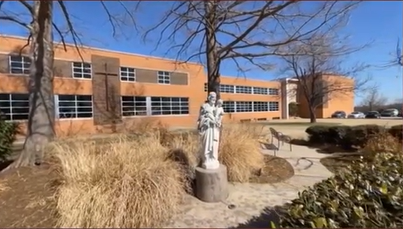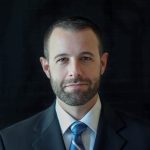
St. Isidore of Seville is the patron saint of technology and the internet.
On this episode, senior writer Lisa Buie talks with Brett Farley, executive director of the Catholic Conference of Oklahoma.
Founded in 2017 by Oklahoma's Catholic bishops, the Catholic Conference of Oklahoma serves as the official voice of the Catholic Church in Oklahoma on matters of public policy. The Conference operates at the intersection of faith and politics.

Brett Farley, executive director of the Catholic Conference of Oklahoma
Farley has served as the primary spokesperson for the Archdiocese of Oklahoma City and Diocese of Tulsa as the two organizations applied to open St. Isidore of Seville Catholic Virtual Charter School. Named for the patron saint of the internet and technology, St. Isidore made history on June 5 when the Oklahoma Statewide Virtual Charter School Board approved it by a 3-2 vote as the nation’s first religious charter school. The decision is expected to result in litigation, as supporters and opponents each threatened a court challenge depending on the outcome.
Farley offers some background about the reasons and purpose of a Catholic virtual charter school. He also offers an argument for why such a school passes constitutional muster.
“In the context of a private virtual school, we would still have to charge tuition, and that becomes, for some folks, a non-starter. They simply can't afford anything. But secondarily by partnering with the state, again, it opens up all kinds of possibilities that a tuition-based program wouldn't be able to afford. That's one of the primary features of a charter program is that the state's going to fund innovation.”
Please note: Since this podcast was recorded, the U.S. Supreme Court declined to review a decision from the U.S. 4th Circuit Court of Appeals in Charter Day School v. Peltier, a North Carolina dress code case in which one charter school argued that it is a private actor. The court's refusal to hear the case was hailed as a win by many charter school advocates, who argue charter schools are public. But it leaves the constitutional status of overtly religious charter schools in limbo.
Episode Details: